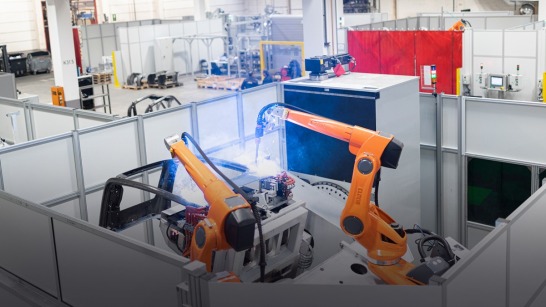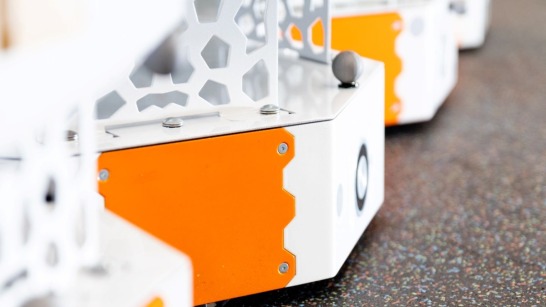Efficient use of space and intelligent software
The smooth, space-efficient operation of Dematic ALSs was specifically recognized at the Modern Library Awards ceremony. The systems operate in just one-seventh of the space required by conventional library systems and feature customized shelving and container solutions. By identifying unused spaces, the system assigns titles with flexible rather than fixed storage locations to maximize the use of the total space. Intelligent software tracks the books with the highest degree of accuracy, allowing it to know exactly what titles are at any given time. Considering the staggering numbers involved – millions of books, tapes, journals, and articles – the advantages of an ALS over manual archiving processes is clear. However, one of the most important features has nothing to do with increasing efficiency or cutting costs, but rather with the preservation of the materials.
Intelligently stored and optimally protected
In conventional libraries, books are subject to many factors that can harm them. Lots of handling by multiple people, dust, too much sunlight, and fluctuating temperatures can all risk damaging the books. Dematic ALSs provides better management of all of these factors – books are stored in a separate area, inaccessible to people, where they are kept in complete darkness under ideal temperature conditions until they are needed. Moreover, by reducing oxygen levels, the system protects the inventory from fires. As a result, this modern automation solution is making a significant contribution to prolonging the lifespan of valuable historical works – not only in Israel, but in Canada as well. Work for Library and Archives Canada on the world’s largest automated library system to date began in January 2020 and is expected to be completed in the summer of 2022 when a 30-meter-high facility will usher in a new era of archiving. Countless works are to be given a new home and, by using the latest technology, history will literally be better preserved for future generations to come.
Dematic is transforming archives and libraries with intelligent automation into technologically advanced memory institutions, where our knowledge can be protected in a sustainable way. This represents a successful example of how automation can also play an important role outside of warehouses, and in so doing, even contribute to the preservation of our culture.
_image_546x307.jpg)
.jpg)


